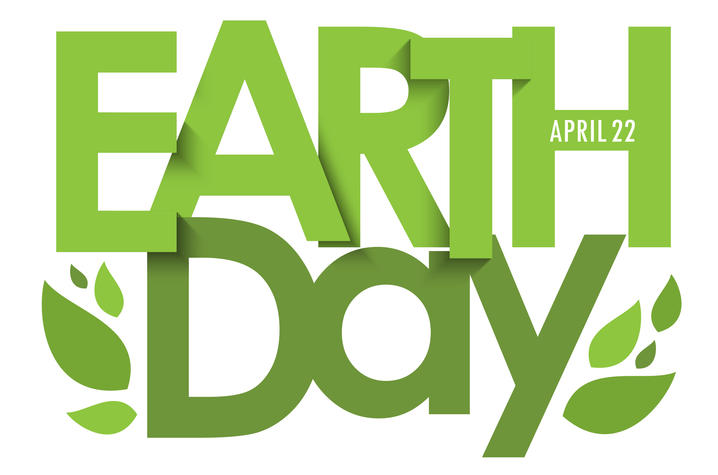How to Celebrate 50th Anniversary of Earth Day Amid Pandemic

LEXINGTON, Ky. (April 22, 2020) — Earth Day is 50 years old. It has a distinguished history, contributing to the formation of the U.S. Environmental Protection Agency and legislation such as the Clean Water Act, the Clean Air Act and the Endangered Species Act. According to the Earth Day website, the day “is marked by more than a billion people every year as a day of action to change human behavior and create global, national and local policy changes.”
On this 50th anniversary, Amanda Gumbert, extension water specialist with the University of Kentucky Cooperative Extension Service, said this year should be no different, despite having to avoid mass gatherings due to the COVID-19 pandemic.
“This year, most of us will celebrate Earth Day at home, but there are some simple things we all can do to be more eco-friendly every day, and raise our spirits in a time of uncertainty,” she said. “Take some time to get out into nature, even if it’s just in your backyard, to experience the beauty of a Kentucky spring. Breathe in the fresh air, listen for birds, enjoy the many spring colors, and if you’re lucky enough to have a creek nearby, take a moment to appreciate the many benefits of clean water for both humans and wildlife.”
Gumbert suggested some other simple activities that people can do alone or with their families to remember this milestone anniversary of the modern environmental populist movement.
Plant a garden. Try containers for small patios or yards. Include both vegetables and some flowers for cutting. Another option is to join in a local farm’s community supported agriculture (CSA) program.
Compost food scraps and yard waste, rather than sending them to the landfill. Before long a compost bin will provide rich, nutritious soil amendment for your garden.
Follow the "3 Rs" to keep as much as possible out of the landfill. They are:
- Reduce: Avoid using single-use, disposable items like paper plates, cups, napkins and utensils. “This is easier when eating most meals at home,” Gumbert said, “but try to create a new habit to avoid disposable items in the future. Also, avoid purchasing items with lots of packaging, which is usually wasted.”
- Reuse: Find new uses for household items or share them with a friend.
- Recycle: Look for opportunities to recycle items that can’t be reused or composted.
Explore a natural area close to home. Some of Kentucky’s nature preserves are still open for hiking, as long as hikers practice appropriate social distancing. Learn more about Kentucky’s native wildflowers by observing and through Garrard County 4-H’s “On the Ground” series.
Take care of water resources. Planting along a backyard stream or neighborhood pond or lake will help reduce erosion, protect water quality and improve the beauty of the landscape. Learn more about all things water in Kentucky on the KYH2O podcast.
Conserve water at home by taking shorter showers and turning off the faucet while brushing teeth.
Conduct a family litter cleanup. Grab some trash bags, sturdy gloves and boots and pick up litter along nearby streets and roads. Litter can create hazards for livestock, wildlife and waterways.
Plant a native Kentucky tree, which benefits native wildlife, as well as combats air pollution and helps to prevent erosion. Learn more about Kentucky’s woodlands on the "From the Woods" podcast.
Save energy by turning out lights when leaving a room, unplug electronics when not in use, and switch to energy-efficient appliances when it’s time to replace old ones.
Check out nonprofit organizations with eco-friendly missions and support them if possible.
“This Earth Day may be different than previous ones, but if we all take little steps, we can still make a big impact in improving our environment,” Gumbert said.
UK Cooperative Extension is part of the UK College of Agriculture, Food and Environment. With its land-grant partner, Kentucky State University, the Kentucky Cooperative Extension Service brings the university to the people in their local communities, addressing issues of importance to all Kentuckians.
As the state’s flagship, land-grant institution, the University of Kentucky exists to advance the Commonwealth. We do that by preparing the next generation of leaders — placing students at the heart of everything we do — and transforming the lives of Kentuckians through education, research and creative work, service and health care. We pride ourselves on being a catalyst for breakthroughs and a force for healing, a place where ingenuity unfolds. It's all made possible by our people — visionaries, disruptors and pioneers — who make up 200 academic programs, a $476.5 million research and development enterprise and a world-class medical center, all on one campus.




